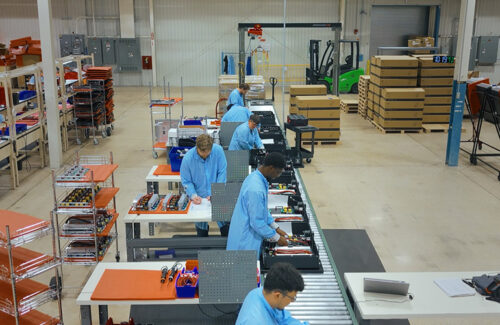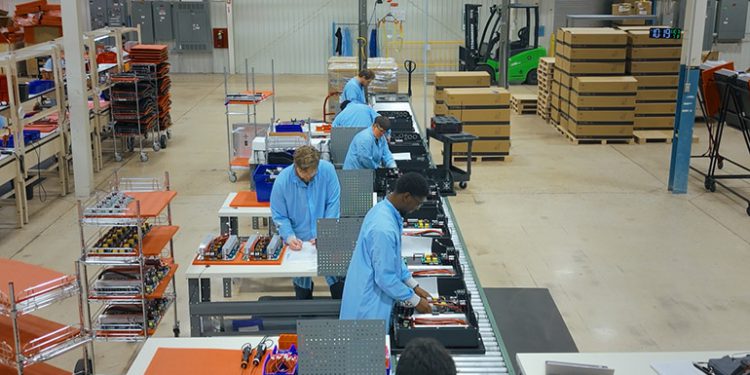
EG4’s Texas manufacturing facility.
New data from the Solar Energy Industries Association (SEIA) shows that the entire solar supply chain has been reshored and U.S. manufacturing capacity has grown across every segment of the solar and storage supply chain. With the news of Corning’s new ingot and wafer facility coming online in Q3, the United States now has the capacity to produce every major component of the solar supply chain. However, this progress could all be at risk if the Trump administration continues its attacks on solar energy.
According to SEIA’s Solar & Storage Supply Chain Dashboard, since the end of 2024, U.S. manufacturing capacity has increased across every major segment of the solar and storage supply chain. As of October 2025, the United States has surpassed 60 GW of domestic solar module production capacity, a 37% increase from December 2024.
The surge in production of downstream components like modules has ensured there is sufficient demand for upstream manufacturing. Since the end of 2024, U.S. solar cell production capacity has more than tripled, rising from 1 GW to 3.2 GW.
Battery cell manufacturing for stationary electricity storage applications has risen to over 21 GWh, which is enough to power the city of Houston from sunset to sunrise.
“This growth is a testament to the power of American innovation,” said Abigail Ross Hopper, president and CEO of SEIA. “We’re building factories, hiring American workers and showing that solar energy means made-in-America energy.”
U.S. manufacturing of solar inverters has grown by nearly 50% since the end of last year, with capacity surging from 19 GW to 28 GW. U.S. mounting system manufacturing has also continued to grow since 2024, growing 14% and adding 23 new factories.
The U.S. solar manufacturing pipeline remains robust, with 23 GW of solar module capacity, over 34 GW of solar cell capacity, 25 GW of inverter capacity and 95 GWh of battery cell capacity under construction or announced. But Trump Administration policies, regulations and trade actions which have contributed to industry uncertainty could stall this progress and dampen demand for the products produced by America’s solar and storage manufacturers.
“We’re seeing strong growth today, but that momentum isn’t guaranteed. If the administration continues down this path, they risk driving investment overseas, stifling job creation, raising costs on consumers, and handing America’s manufacturing advantage to our competitors,” continued Hopper. “This industry has proven what’s possible when businesses have the certainty to invest. If the administration does not reverse their harmful actions that have undermined market certainty, energy costs will rise even further, and the next wave of factories and jobs could be at risk.”
News item from SEIA
















